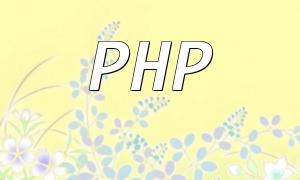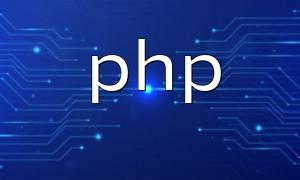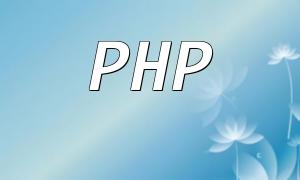In recent years, with the rapid development of the internet, network security issues have become increasingly prominent. In this information age, protecting the security and reliability of websites is becoming more crucial. PHP, as a widely used programming language for web development, is particularly under scrutiny when it comes to security. In this article, we will explore PHP's low-level development principles and introduce some common security vulnerabilities and protective measures.
Before diving into the low-level development principles of PHP, we need to understand some basic concepts. PHP (Hypertext Preprocessor) is an open-source server-side scripting language commonly used for web development. PHP scripts can be embedded within HTML to generate dynamic web pages. Compared to other programming languages, PHP has advantages such as ease of learning and high execution efficiency, making it popular among developers.
Due to PHP's wide application, it has become a prime target for hackers. Below are some common security vulnerabilities and their protective measures.
Cross-Site Scripting (XSS) is an attack method that exploits vulnerabilities in web applications. Attackers inject malicious scripts, which are then executed when a user visits the affected page. To prevent XSS attacks, PHP developers should filter and escape all user inputs to ensure that input content is not executed as code. Additionally, using the httponly flag can prevent JavaScript from accessing and modifying the user's cookie information.
SQL injection attacks are a method where attackers insert malicious SQL code into input fields to extract sensitive data. To prevent SQL injection, PHP developers can use prepared statements or stored procedures to handle user input and employ parameterized queries to avoid SQL string concatenation. Additionally, enabling PHP's Magic Quotes feature can automatically escape user input, effectively preventing SQL injection attacks.
File inclusion vulnerabilities occur when insecure include functions in web applications allow the execution of malicious code. To prevent such vulnerabilities, PHP developers should avoid using unsafe functions like include and require. Instead, it is recommended to use include_once and require_once to ensure that files are not included multiple times, increasing code security.
In addition to the aforementioned security vulnerabilities and protective measures, PHP developers can adopt other practices to further enhance the security of websites. Here are some recommendations:
Ensure that server and system software are updated regularly to fix known security vulnerabilities.
Use secure password encryption algorithms to avoid storing plaintext passwords.
Limit file upload types and sizes to prevent malicious files from being uploaded.
Understanding the low-level development principles of PHP is fundamental to safeguarding website security. By mastering common security vulnerabilities (such as XSS, SQL injection, and file inclusion vulnerabilities) and their protection measures, developers can better handle various security threats and protect websites from attacks. In today's network environment, PHP developers should always focus on website security, continually improve protection mechanisms, and ensure the stability and safety of their websites.









